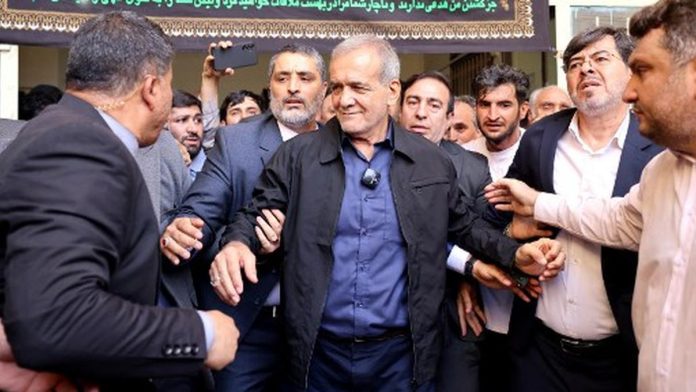7 July 2024: Masoud Pezeshkian, a reformist candidate, emerged victorious in Iran’s runoff presidential election on Saturday, defeating hard-liner Saeed Jalili. Pezeshkian’s campaign promises included outreach to the West and easing enforcement of the country’s mandatory headscarf law amid years of sanctions and protests.
Electoral authority spokesman Mohsen Eslami, quoted by the official IRNA news agency, reported that more than 11 million ballots were counted for Pezeshkian, while around 9 million were for Jalili. The Interior Ministry announced Pezeshkian’s win with 16.3 million votes compared to Jalili’s 13.5 million in Friday’s election, noting that 30 million people voted without internationally recognized monitors.
Supporters of Pezeshkian, a heart surgeon and long-time lawmaker, celebrated in the streets of Tehran and other cities as his lead over Jalili grew. Despite the victory, Pezeshkian faces significant challenges, including a government still dominated by hard-liners, ongoing regional tensions due to the Israel-Hamas war, and Western concerns over Iran’s nuclear program.
Pezeshkian pledged no radical changes to Iran’s Shiite theocracy and acknowledged Supreme Leader Ayatollah Ali Khamenei as the ultimate authority. His modest goals will be tested by the current political landscape, with the need to navigate Iran’s internal politics carefully.
The first round of voting on June 28 saw the lowest turnout since the 1979 Islamic Revolution, reflecting the public’s disenchantment due to economic sanctions, mass demonstrations, and intense crackdowns on dissent. Friday’s turnout was reported at 49.6%, historically low for an Iranian presidential election, with 607,575 voided votes indicating protest against both candidates.
The election took place amid heightened regional tensions. Iran recently launched its first direct attack on Israel over the Gaza conflict, while militia groups allied with Tehran, such as Hezbollah and the Houthi rebels, have escalated their attacks.
Pezeshkian, despite identifying with reformists, praised Iran’s Revolutionary Guard and criticized the United States. He emphasized the need for an independent audit to ensure transparency and integrity in future elections.
Over 61 million Iranians were eligible to vote, with a significant number of young voters between 18 and 30. Voting was extended until midnight to boost participation. Pezeshkian’s victory marks a critical moment for Iran, with the new president needing to balance reformist ideals with the realities of a hard-line-dominated government.




